The branches of biology cover a wide array of specialised fields, where each field explores the unique aspects of life. Due to its vast scope and the diversity of its subfields, biology is considered one of the most intricate and rewarding sciences. Biology offers broad career potential in areas like medicine, environmental science, and biotechnology, which offer exciting opportunities for growth. In this blog, we will delve into the key branches of biology, providing an overview of what each branch covers and how they contribute to the broader understanding of life.
This Blog Includes:
Introduction to the Branches of Biology
Biology is a field of study that examines living things and their essential functions. Botany, conservation, ecology, evolution, genetics, marine biology, medicine, microbiology, molecular biology, physiology, and zoology are just a few of the many disciplines that make up biology.
These branches focus on areas such as animals, plants, microorganisms, genetics, and ecosystems, helping us understand life at all levels. By studying the branches of biology, we gain insights that drive advancements in medicine, agriculture, conservation, and more.
All Branches of Biology
The following is the list of all branches of biology that the students should know about:
| S.No. | Branch of Biology | What It Studies |
|---|---|---|
| 1 | Anatomy | Structure of organisms and their parts |
| 2 | Physiology | Functions of organs and body systems |
| 3 | Botany | Plants and plant life |
| 4 | Zoology | Animals and animal life |
| 5 | Microbiology | Microorganisms like bacteria, viruses, fungi |
| 6 | Genetics | Genes, heredity, and variation |
| 7 | Ecology | Organisms and their environment |
| 8 | Evolutionary Biology | Evolution and natural selection |
| 9 | Cell Biology (Cytology) | Structure and function of cells |
| 10 | Molecular Biology | Biological molecules and processes |
| 11 | Biochemistry | Chemical processes within organisms |
| 12 | Immunology | Immune system and immunity |
| 13 | Virology | Viruses and viral diseases |
| 14 | Mycology | Fungi and fungal diseases |
| 15 | Entomology | Insects |
| 16 | Herpetology | Reptiles and amphibians |
| 17 | Ornithology | Birds |
| 18 | Marine Biology | Marine organisms and ecosystems |
| 19 | Environmental Biology | Environmental processes affecting life |
| 20 | Biotechnology | Use of biological systems for technology |
| 21 | Pathology | Diseases and their causes |
| 22 | Parasitology | Parasites and host interactions |
| 23 | Embryology | Development of embryos |
| 24 | Paleontology | Fossils and ancient life |
| 25 | Neuroscience | Nervous system and brain functions |
| 26 | Taxonomy | Classification and naming of organisms |
| 27 | Genomics | Genomes and genetic sequencing |
| 28 | Agricultural Biology | Crops, soil, and farming biology |
| 29 | Pharmacology | Drugs and their effects on living organisms |
| 30 | Physiology (Human/Animal/Plant) | Functional processes of different organisms* |
25 Main Branches of Biology
The main branches of biology are important for students as they are well-known and widely studied around the world. These branches cover a wide range of topics, and their resources, like labs and books, are easily accessible to everyone. Researchers are interested in the natural world because it allows them to explore different areas of life science in detail and understand how all living things are connected. Here are the 25 major branches of biology:
- Botany
- Zoology
- Microbiology
- Genetics
- Ecology
- Evolutionary Biology
- Cell Biology
- Molecular Biology
- Biochemistry
- Physiology
- Anatomy
- Biotechnology
- Immunology
- Marine Biology
- Environmental Biology
- Developmental Biology
- Paleontology
- Taxonomy
- Virology
- Mycology
- Parasitology
- Neurobiology
- Entomology
- Ornithology
- Pharmacology
Also Read: Study a Bachelor in Biology in the USA
Branches of Biology from A to Z
From anatomy to zoology, the branches of biology from A to Z provide a comprehensive understanding of life’s diversity, enabling breakthroughs in science, medicine, and environmental studies.
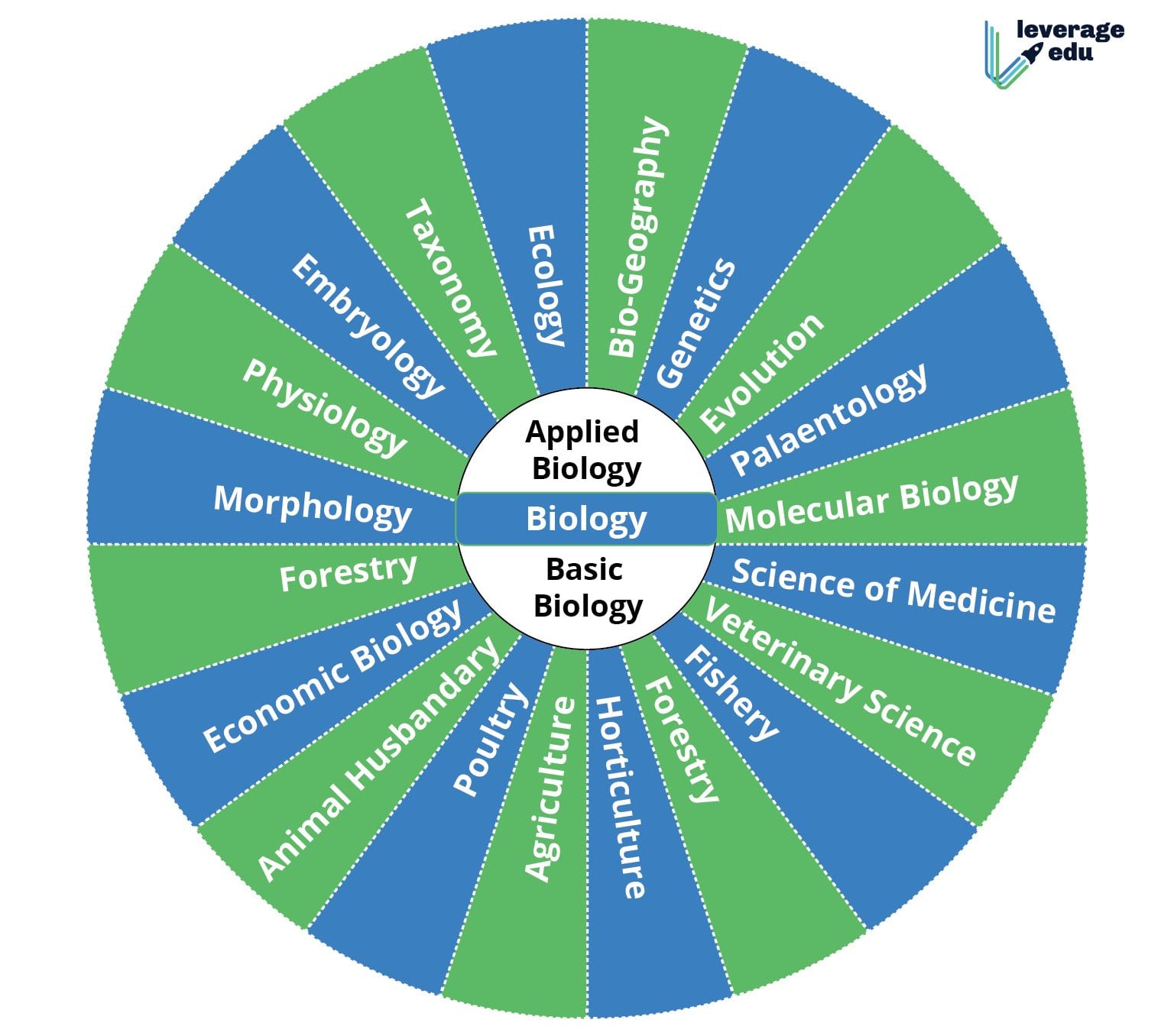
Here is an organized list of branches of Biology, each representing a letter from A to Z, highlighting their focus areas:
| Letter | Branch of Biology | Description |
| A | Anatomy | Study of the structure of living things and their parts. |
| Astrobiology | Study of life in the universe. | |
| B | Biotechnology | Study of technology related to biology. |
| Botany | Scientific study of plants. | |
| Biochemistry | Study of chemical processes within or related to living organisms. | |
| Biophysics | Study of physical processes and phenomena in living organisms. | |
| Bionics | Study of mechanical systems inspired by living organisms. | |
| Bioinformatics | Interpretation of biological information through computer science. | |
| C | Cell Biology | Study of cell structure and functions. |
| Chemical Biology | Use of chemistry to solve biological problems. | |
| Computational Biology | Development of algorithms to understand biological systems. | |
| Conservation Biology | Study of environmental conservation and biodiversity. | |
| Chronobiology | Study of biological rhythms and the effects of time on organisms. | |
| D | Developmental Biology | Study of growth and development processes in plants and animals. |
| E | Evolutionary Biology | Study of evolutionary processes, adaptation, and diversification of life. |
| Ecology | Study of interactions between organisms and their environment. | |
| Environmental Biology | Study of evolution, habitats, and adaptations of living organisms. | |
| G | Genetics | Study of genes, genetic variation, and heredity in living beings. |
| Geobiology | Study of how physical, chemical, and biological processes influence each other in natural habitats. | |
| Gerontology | Study of aging and its physical, social, and psychological effects. | |
| H | Human Biology | Study of the human species, including evolution, genetics, and anatomy. |
| Human Genetics | Study of the human genome and gene transmission across generations. | |
| I | Immunology | Study of the immune system in all organisms. |
| L | Lichenology | Study of lichens. |
| M | Marine Biology | Study of marine organisms and ecosystems. |
| Mycology | Study of fungi. | |
| Microbiology | Study of microorganisms and minute life forms. | |
| Molecular Biology | Study of chemical structures and biological processes of molecules. | |
| N | Neurobiology | Study of nervous systems and cellular functions. |
| Nutrition Science | Study of food, nutrients, and their effects on health and disease. | |
| P | Pathology | Study of disease and injury. |
| Physiology | Study of how living organisms function. | |
| Paleobiology | Application of biology to the study of fossils and ancient life. | |
| Phycology | Study of algae. | |
| Parasitology | Study of parasites, their hosts, and their relationships. | |
| Plant Physiology | Study of plant functions and behaviors. | |
| Photobiology | Study of the effects of light on living organisms. | |
| R | Radiobiology | Study of the effects of ionizing radiation on living beings. |
| S | Structural Biology | Study of the structure of biological molecules. |
| Soil Biology | Study of living organisms in the soil. | |
| Systems Biology | Study of biological systems and their interactions. | |
| T | Taxonomy | Study of naming, classifying, and organizing living organisms. |
| V | Virology | Study of viruses and viral diseases. |
| Z | Zoology | Study of animals and their biology. |
Let’s learn about these main branches of biology in detail, one by one
Anatomy
Anatomy is one of the main branches of biology that allows an individual to understand the structure and the parts of organisms including animals, human beings, and living organisms.
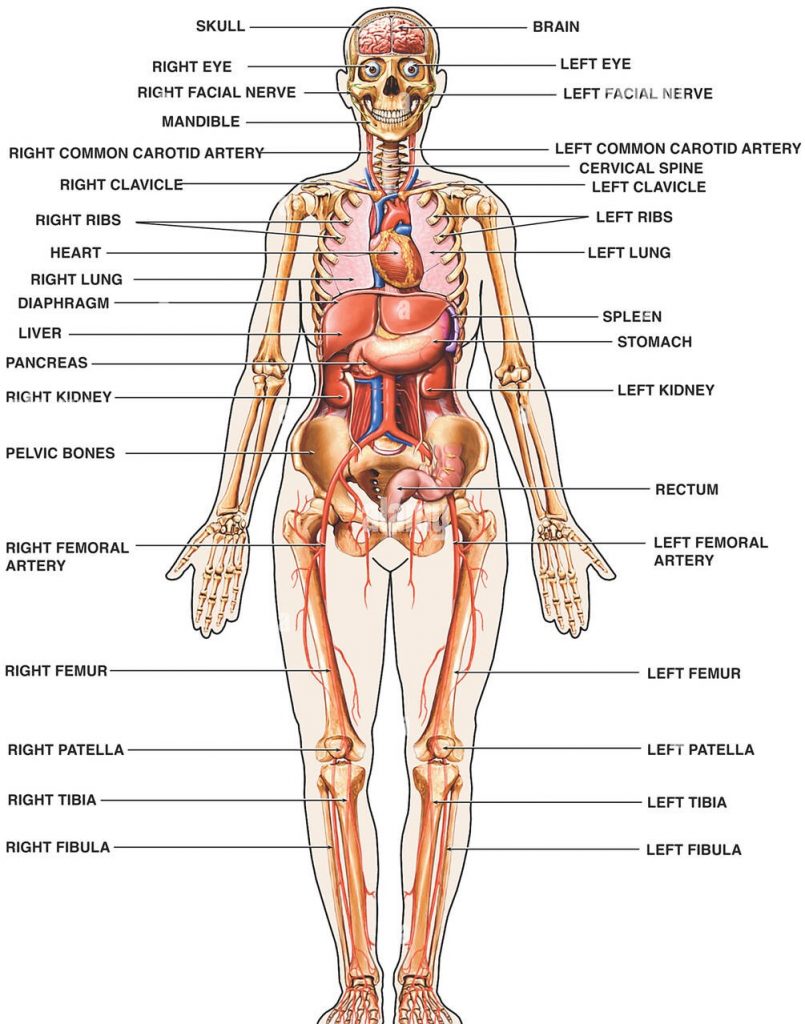
Moreover, it investigates how a living body adapts and maintains balance with the physical environment and human health.
Botany
Botany is the scientific study of plants, covering their structure, growth, reproduction, and ecological roles. Plants are vital for life on Earth, providing oxygen, food for herbivores, and supporting ecosystems. This branch of biology also explores their environmental and economic significance.
Key areas of botany include:
- Plant Physiology: Focuses on processes like nutrient absorption, photosynthesis, and energy production.
- Plant Taxonomy: Classifies plants based on evolutionary relationships, aiding in identification and conservation.
- Plant Ecology: Examines plant interactions with the environment, contributing to ecosystem balance and sustainability.
A BSc in Botany provides the foundation for a career in this field, where knowledge of plants is critical for addressing global challenges like climate change, food security, and conservation.
Taxonomy
It is one of the most important branches of biology that deals with categorizing and naming organisms based on their characteristics. It involves classifying organisms into hierarchical categories, such as domain, kingdom, phylum, class, order, family, genus, and species. A key feature of taxonomy is binomial nomenclature, a system in which each species is given a two-part Latin name, such as Homo sapiens for humans.
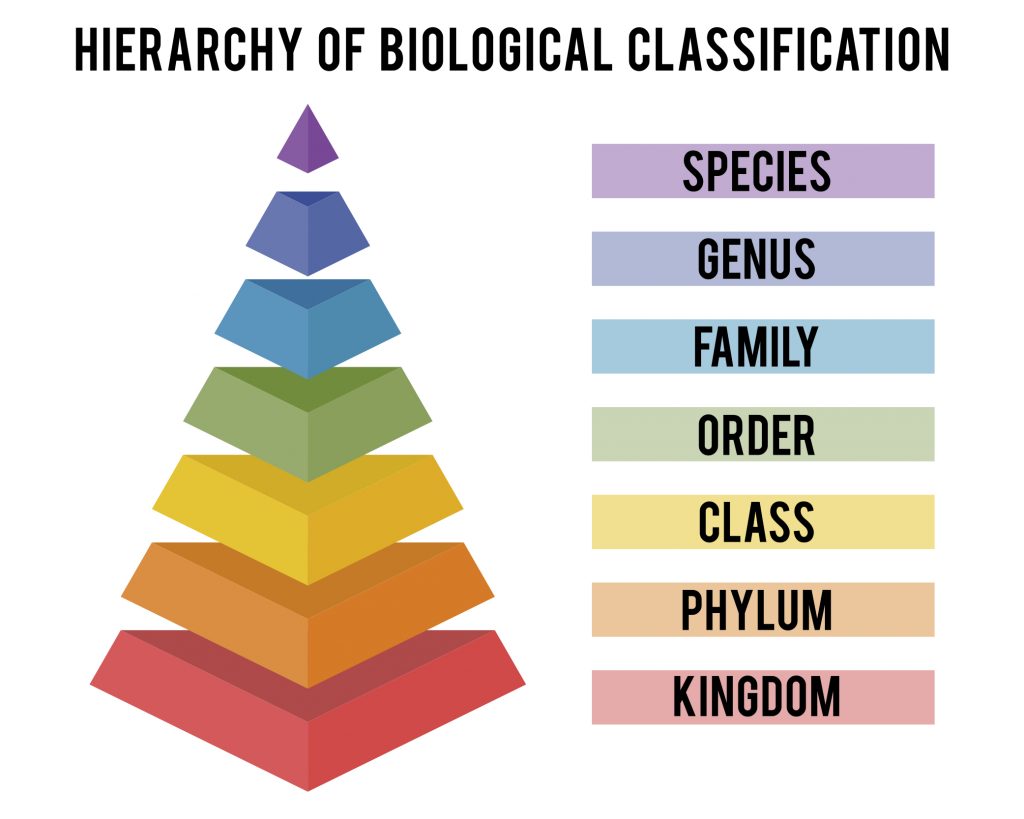
Key Components of Taxonomy
Here are some of the key components of Taxonomy mentioned below:
- Binomial Nomenclature: A two-part naming system (e.g., Homo sapiens) that ensures each organism has a unique name.
- Hierarchical Classification: Organisms are grouped into categories, from broadest (domain) to most specific (species).
- Taxonomic Keys: Tools that help identify organisms based on specific characteristics.
Importance of Taxonomy
There are so many important aspects of taxonomy in Biology. Some of them are listed below:
- Organizing Diversity: It provides a clear structure for the vast array of species on Earth.
- Evolutionary Insights: Helps trace relationships between species and understand evolutionary patterns.
- Conservation: Essential for identifying and protecting endangered species.
- Practical Applications: Used in medicine and agriculture to identify pathogens and pests.
Taxonomy is essential for understanding life’s diversity, organising biological data, and facilitating communication across scientific disciplines.
Zoology
Zoology is the branch of biology that focuses on the study of animals. It covers a wide range of topics, including the anatomy, physiology, behaviour, and classification of animals. Zoologists explore how animals interact with their environment, how they evolve, and their role in ecosystems.

Key areas in zoology include:
- Animal behavior: Understanding how animals respond to stimuli and how they communicate.
- Physiology: Examining how animal bodies function, including organ systems and metabolism.
- Evolution and classification: Studying the evolutionary history and taxonomy of animal species.
Microbiology
Microbiology is the study of microorganisms, including bacteria, viruses, fungi, and protozoa. These microscopic organisms play vital roles in ecosystems, the environment, and human health. Microbiologists research the biology of these organisms, how they affect other organisms, and how they can be controlled.

Key areas in microbiology include:
- Bacteriology: The study of bacteria and their role in disease, as well as their beneficial applications.
- Virology: The study of viruses and how they interact with their hosts.
- Mycology: The study of fungi, which are critical for decomposition and some human applications like food production.
Through Microbiology courses you will get to understand their metabolism and growth in a detailed way.
Mycology
Mycology is the scientific study and research of fungi. Fungi are a group of multicellular organisms that cannot make their food and play a major role in nutrient cycling in an ecosystem.
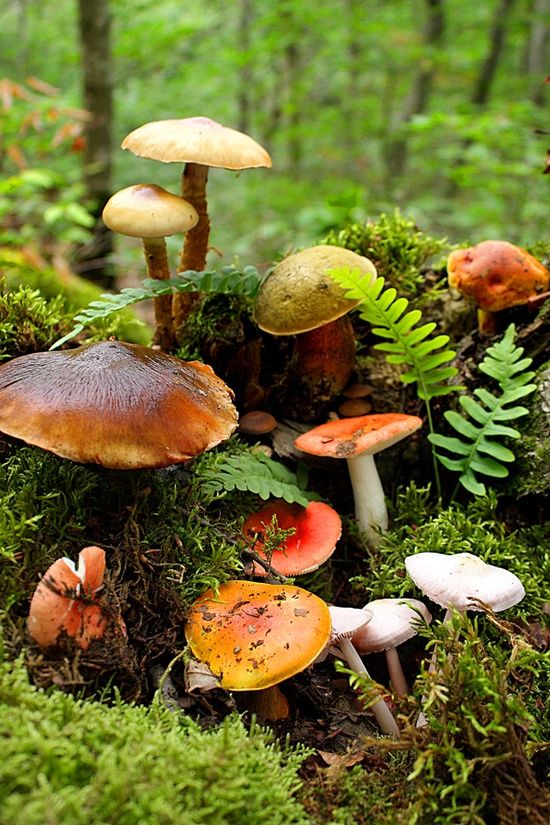
Key areas of study in mycology include:
- Fungal taxonomy: The classification of fungi into different groups based on their characteristics.
- Fungal ecology: Understanding how fungi interact with their environment, including their role in nutrient cycling.
- Medical mycology: The study of fungi that cause diseases in humans, animals, and plants. Some fungi can be pathogens, leading to conditions like athlete’s foot, ringworm, or more severe systemic infections.
- Industrial mycology: The use of fungi in industrial applications, such as the production of antibiotics (like penicillin) and food products (like cheese and mushrooms).
Phycology
Phycology, or algology, is the study of algae—simple, photosynthetic organisms found in aquatic environments. Algae play a crucial role in ecosystems as primary producers, converting sunlight into energy and contributing to oxygen production.
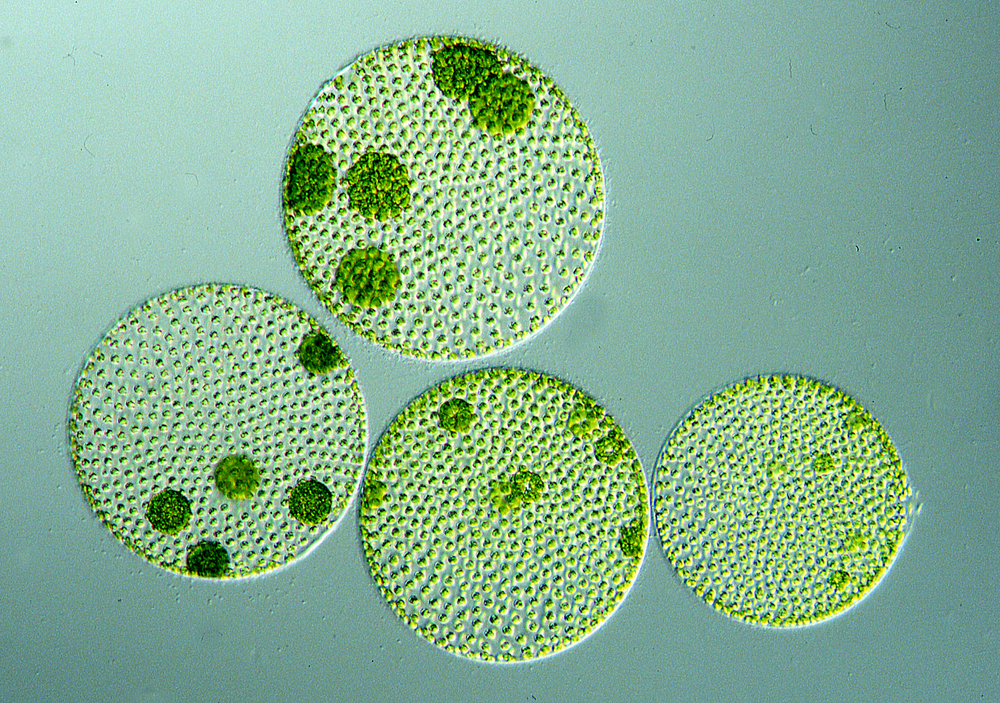
Key Points:
- Types of Algae: Green, brown, and red algae, each with distinct features.
- Ecological Role: Algae support marine food webs, carbon sequestration, and oxygen production.
- Industrial Uses: Algae are used in food, pharmaceuticals, agriculture, and biofuel production.
Phycology helps us understand the importance of algae in both nature and industry, from sustaining ecosystems to offering innovative solutions in biotechnology.
Parasitology
Parasitology is the study of parasites—organisms that live on or inside a host and benefit at its expense. These include protozoa (like Plasmodium causing malaria), helminths (worms), and ectoparasites (lice, fleas). Parasites can be transmitted through contaminated food, water, insect bites, or direct contact.
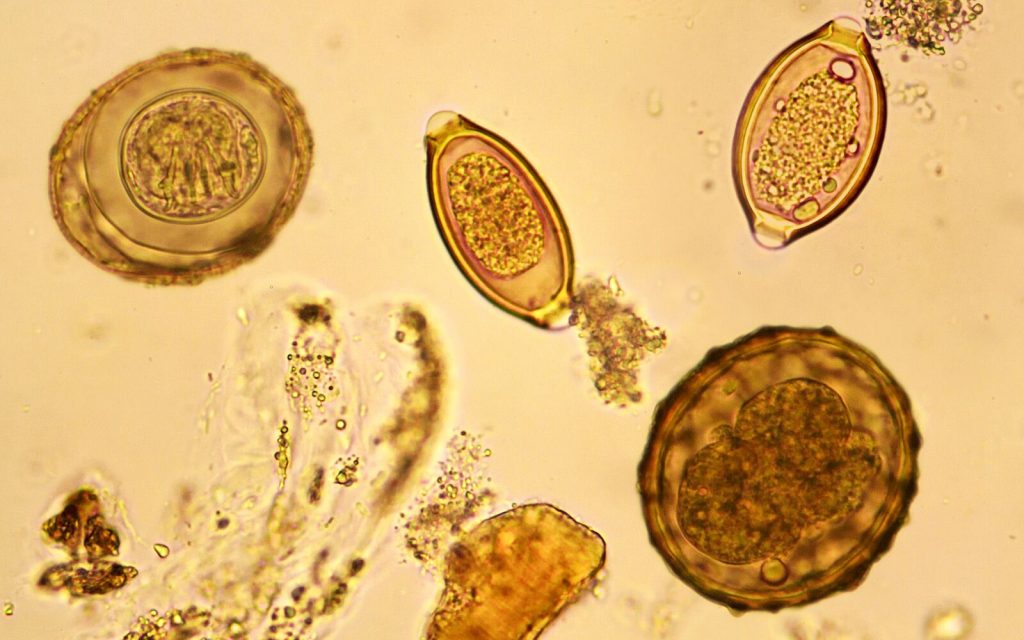
Key Points:
- Types of Parasites: Protozoa, helminths, and ectoparasites.
- Transmission: Spread through contaminated food, water, insect bites, or direct contact.
- Impact: Parasites cause various diseases with symptoms like fever and organ damage.
- Research: Focuses on understanding parasites’ life cycles to develop treatments and prevent infections.
In short, parasitology is vital for combating parasitic diseases that affect human and animal health.
Theoretical Biology
Theoretical Biology or Mathematical Biology is an interdisciplinary field of scientific research with applications in medicine, biology, and biotechnology and is a lucrative option when considering the branches of Biology.
Also Read: Study a Course in Forensic Science in UK
Genetics
Genetics is described as the study of genes, genetic variations, and principles of heredity in living organisms. You will also be introduced to the concept of molecular genetics and genetic mapping, which are important when it comes to the branches of Biology.
Ecology
Ecology deals with the study of the interaction of living organisms, such as plants, animals, including humans and microbial populations, with one another and their physical environment.
Biochemistry
Biochemistry is the intersection of biology and chemistry that studies various chemical and physicochemical processes that occur within the living body. This subject is best suited for students who are planning to work in medical and pharmacological fields.
Structural Biology
Structural Biology is the branch of biochemistry, biophysics, and microbiology that allows individuals to study the molecular structure of biological macromolecules.
Biotechnology
Biotechnology refers to the exploitation of biological processes such as microorganism genetic manipulation for the production of hormones, antibodies, and industrially relevant products.
Immunology
Immunology is one of the branches of biology and medicine concerned with immunity. Individuals learn immunology mechanisms, like the finer points of tissue transplantation and cancers. Also, immunology works on exploring the causes of autoimmunity responses.
Marine Biology
Marine Biology involves the scientific study of the behaviour and interactions of life forms and marine creatures with the oceans, seas, and other forms of the marine environment.
Branches of Biology and Their Fathers

Here are the different branches of Biology and their fathers:
| Branches of Biology | Fathers |
| Palaeontology | Leonardo di Vinci |
| Botany | Theophrastus |
| Immunology | Edward Jenner |
| Medicine | Hippocrates |
| Microbiology | Antonie Van Leeuwenhoek |
| Taxonomy | Carl Linnaeus |
| Histology | Marie François Xavier Bichat |
| Indian Mycology | Edwin John Butler |
| Zoology | Aristotle |
| Modern Botany | Linnaeus |
| Indian Ecology | Ramdeo Misra |
| Indian Phycology | Parthasarthy Iyengar |
| Bacteriology | Louis Pasteur |
| Plant Physiology | Stephen Hales |
| Botanical Illustrations | Krateuas |
| Mutation Theory | Hugo de Vries |
| Modern Genetics | Thomas Hunt Morgan |
| Cytology | Robert Hooke |
| Modern Embryology | Karl Ernst von Baer |
Why Study Different Branches of Biology?
Biology is the study of life and various life forms, providing deep scientific knowledge of how all living and nonliving beings interact with each other in an environment. Specialisation in the field of Biology will thus help you understand the concepts related to the sustainability of life, food quality, causes of illness, environment, and ecosystem, development of medicines, etc. Let us understand some of the key reasons to opt for branches of biology as a career:
- It helps you understand the changes in human bodies, their physical appearances, and various metabolic reactions within the body.
- From Botany and Anatomy to Biotechnology and Genetics, it provides diversity in careers.
- Large-scale problems like the existence of pollution, increasing population, growth of infections and diseases, food supply shortage, etc., can be studied, and solutions can be discovered using the application of various branches of biology.
- Creates a path for scientific investigation, thus enhancing your chance of establishing a flourishing career in Research.
- Encourages the concepts of basic living. It coaches individuals to plant trees in order to create a healthy environment. With knowledge about the temperature of the human body, you can build shelters effectively.
Careers in Biology
Whether you’re interested in studying animals, educating families about birth defects or designing medical devices, various branches of Biology will present themselves as areas of interest to explore. The diverse scope of Biology allows professionals to make an enormous number of scientific contributions. Below is a list of job opportunities for enthusiasts and experts in Biology:
- Biochemists and Biophysicists
- Bioinformatics Scientists
- Geoscientists
- Conservation Scientists and Foresters
- Environmental Specialists and Scientists
- Microbiologists
- Biomedical Engineers
- Biological Science Teachers
- Genetic Counselors
- Veterinarians
- Zoologists and Wildlife Biologists
- Biological Technicians
- Chemical Technicians
- Forensic Science Technicians
- Medical Laboratory Technologists
Popular Universities for Biology
Below is a list of universities and colleges offering courses in life science and Biology studies:
| University | Country |
| Massachusetts Institute of Technology | USA |
| Stanford University | USA |
| Harvard University | USA |
| Yale University | USA |
| University of California – Berkeley | USA |
| Johns Hopkins University | US |
| University of Alberta | Canada |
| University of Queensland | Australia |
| La Trobe University | Australia |
| Newcastle University | United Kingdom |
| University of British Columbia | Canada |
| Massey University | New Zealand |
FAQs on Branches of Biology
Some of the popular Biology courses are Microbiology, Biotechnology, Zoology, Environmental Science, Marine Biology, Botany, Human Biology, etc.
Aristotle is regarded as the Father of Biology.
The study of cells is called Cytology. It is a branch of Biology that studies the functions and structures of cells.
Some of the popular Biology professions include Biologist, R&D Scientist, Ecologist, Forensic Scientist, Pharmaceutical Marketing, Teacher, etc.
Answer: The main branches of biology are zoology, botany, microbiology, ecology, genetics, and evolutionary biology. Each branch focuses on a specific aspect of living organisms and their interactions with the environment.
Related Reads:
Are you interested to learn more about the vast world of biology? Then, taking up a course from various branches of biology can benefit you in a huge way. Experts at Leverage Edu can help you identify the right course in Biology that aligns with your interests, thus assisting you in taking the first step towards your dream career. Call us immediately at 1800 57 2000 for a free 30-minute counselling session.


 One app for all your study abroad needs
One app for all your study abroad needs











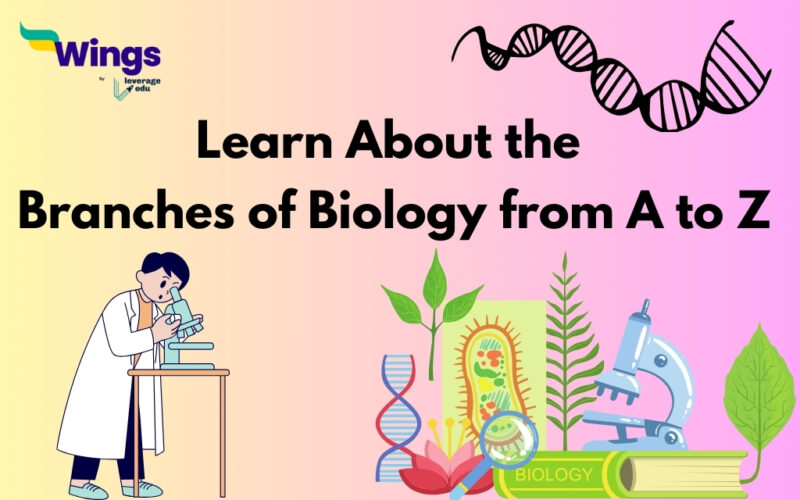

 60,000+ students trusted us with their dreams. Take the first step today!
60,000+ students trusted us with their dreams. Take the first step today!
16 comments
Best
Its very helpful for mei
Thank you!
Nice website
Thanks, Teni!
A VERY COMPRESSIVE NOTE ON BRANCHES OF BIOLOGY
Hi, Adesina!
Thanks for liking our blog. You can also read: Scope of Microbiology
MSc Microbiology Syllabus
MSc in Molecular Biology: Syllabus, Scope, Jobs, Top Universities
Reach us at 1800 57 2000 for study-abroad related matters!
It was so helpful for my biology assignment thanks
Hi, thanks for reading!
Keep yourself updated and stay tuned for the amazing content.
Also, check our blogs on: Courses After BSc Biology
Courses After BSc Biology
This is very nice and encouraging
Thanks for helping the student
Thank you for the comment!
Am about write my waec ,am searching for a course that best suits me and also can be a good benefit to me in terms of career
Am not good in physics ,am average in chemistry
Also average in biology
I love biology
Hi Glenny. We can definitely help you our with this one. Our AI Course Finder can help you find the best course according to your requirements. Please do check it out. You can also download the Leverage App to find the solutions to all your study abroad needs. Download it at:
For Android
https://play.google.com/store/apps/details?id=com.leverageedu.leverageedu
For iOS
https://apps.apple.com/in/app/leverage-edu/id1590845967
Already Existing Unknown World around of me reveals( Discovered) infront of us through your blog. How iam thanks to you. There is no words enough except very very thanks to your efforts
It is really an amazing information. It really helps a lot. Thank you very much.